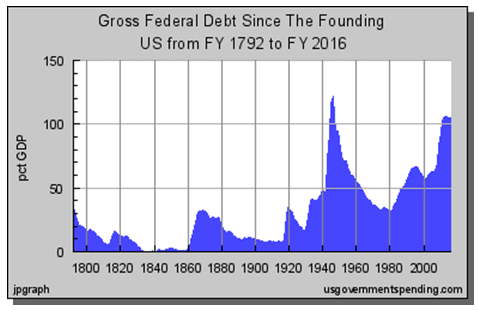'You can always trust the Americans to do the right thing, but only after exhausting all other possibilities.'
--Winston Churchill
When it comes to our political leaders in Washington, let's hope Churchill was right. If he's wrong, then the U.S. economy -- and the stock market -- may be headed for a sharp shock. It's bad enough that Congress and the White House can't seem to come any closer to an agreement to close the budget deficit.
Now, Washington is simultaneously looking at the federal debt ceiling, aiming to tie the two issues together. That means if one problem doesn't get resolved, then the other won't either. It's unclear whether politicians understand just how dangerous that is.
This means a doomsday scenario may kick in by early August.
A Financial Storm Is Brewing
A closer look at the issues -- and some common-sense solutions -- should be the focus of all investors right now. The closer we get to that date without a resolution, the less inclined you should be to add any new stocks to your portfolio.
There's no need to rehash the issues around the budget deficit. Cuts will need to be made, taxes will need to be raised and loopholes will need to be closed. Yet it's the debt-ceiling issue that should be in focus.
Congress realized nearly two decades ago that a refusal to allow any more debt to be added to our existing obligations was the only way to stop the addiction to deficit spending. The Gramm-Rudman-Hollings Balanced Budget and Emergency Deficit Control Act of 1985 called for automatic spending cuts if limits were breached.
There was a clear wisdom behind the move: politicians like to choose where actual cuts are made and not have it forced on them. To avoid being subject to random spending cuts that ate into cherished programs, Congress and the White House suddenly became much more willing to find tangible ways to getting the budget back into balance.
Credit goes to Ronald Reagan, George H.W. Bush and Bill Clinton for showing the ability to lead, each making concessions that actually put our budget into surplus 10 years later. That was an era when 'bi-partisanship' didn't carry such negative connotations. The system worked well until the end of the 1990s.
Then, starting in 2001, we've been on a debt binge that can be blamed on both parties.
Vigilantes Nobody Wants to See
The prospect of unresolved deficits in the mid-1980s created a real impediment to stocks and the economy. Interest rates began to rise as 'bond vigilantes' demanded a hefty premium to keep propping up the U.S.' spending addiction.
The situation was kind of like a drug dealer asking for more and more money to provide each fix. At some point, the user simply sobers up and realizes the drug will lead him to financial ruin. That's what Senators Graham (R-TX), Rudman (R-NH) and Hollings (D-SC) sought to do with their tough-love legislation. In truth, the only consequence of higher debt at the time was higher interest rates.
This time is different.

Conditions for a Global Financial Crisis
Back then, nobody spoke of an outright government default. But this time, any push to block our debt ceiling from rising will actually trigger a potentially catastrophic scenario, thanks to the current size and global nature of lending relationships. In relation to the size of the economy, our debt levels are nearly twice as high as they were in the 1980s, and inaction would take that ratio higher still.
The government has technically already breached agreed-upon debt limits. A step to borrow money from government pension plans that has been undertaken will only tide Uncle Sam over until early August. If no budget agreement is reached by then, and Congress chooses to keep the debt ceiling in place, then the government will start defaulting on its bills.
What happens when the government stops paying bills? Bond markets seize up, as the perceived solidity of existing bonds quickly evaporates. Very quickly, global lenders would demand sharply higher interest rates, perhaps secured by hard assets, to be willing to provide any more credit.
Remember the scary days of 2008 when Lehman Brothers collapsed and the government had to scramble to keep the whole system from collapsing? Well, we're talking about the same dynamic -- frozen banking systems, plunging stock markets and a freeze on new business orders. That's a kind of paralysis we hope to never see again.
Word has spread that a bipartisan group of legislators aiming to fix the budget deficit, known as the 'Gang of Six,' has hit an impasse. Hopes had been rising that the group was on the cusp of announcing a major bipartisan plan.
Frankly, if solutions don't emerge to the budget gap very soon, then it's hard to see how Congress will be willing to extend the debt ceiling. It's such an implausible scenario, yet we're inching closer to it every day.
The Investing Answer
All of this comes at a time when the U.S. economy posted a fairly tepid 1.8% GDP growth rate in the first quarter, with the possibility of more subdued economic activity to come. This game of chicken that Washington is playing comes at a very bad time.
Add it up, and the desire to take a risk with stocks starts to diminish. Your game plan for the next two months should be to watch events very closely and be prepared to reduce your exposure to stocks and hold cash.
Photo courtesy of Flickr -- Adib Roy.



